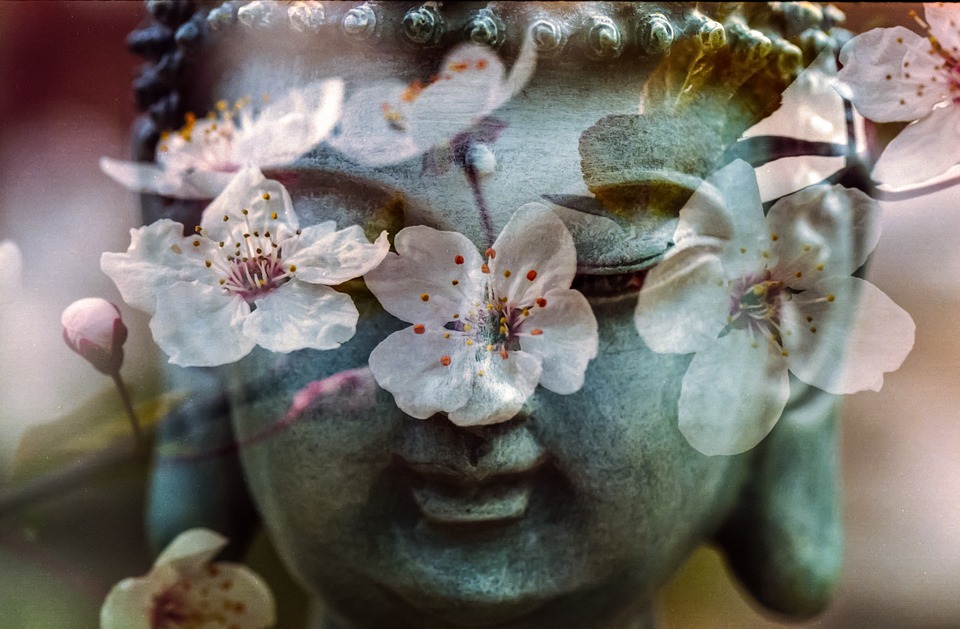When I was first exposed to the teachings of the Buddha, I was overwhelmingly disappointed and confused. This was largely because what the Buddha supposedly said did not make any sense. According to him, our whole existence is suffering, and in order to end the suffering, we need to achieve nirvana. If what he taught is true, then there is no happiness in this world and all we have to do is try to reach the other shore.
The Teachings of the Buddha
In a sense, these arguments seem to be too pessimistic and, in a strange way, suicidal. If our existence in this world does not have any meaning, then the only thing we can do to overcome the hopeless situation is to end our lives. But the first precept of Buddhism is not to kill any living things, which logically include us. Logically speaking, this is a contradiction. Then, is Buddhism just an illogical, irrational religion?
 As I learned more and more about the teachings of the Buddha, however, I realized that what he taught is basically a means of making us aware of the fundamentally unsatisfactory nature of our existence. To put it simply, all things in our lives change constantly and thus cannot give us eternal happiness. Nevertheless, it is our human nature to try to obtain something that we believe makes us truly satisfied. As an antidote to such a persistent tendency, the Buddha compassionately reminded us that everything in our world is dukkha. Although many people wrongly translate the word as suffering, what the Buddha really meant was that nothing in this world can give us ultimate happiness.
As I learned more and more about the teachings of the Buddha, however, I realized that what he taught is basically a means of making us aware of the fundamentally unsatisfactory nature of our existence. To put it simply, all things in our lives change constantly and thus cannot give us eternal happiness. Nevertheless, it is our human nature to try to obtain something that we believe makes us truly satisfied. As an antidote to such a persistent tendency, the Buddha compassionately reminded us that everything in our world is dukkha. Although many people wrongly translate the word as suffering, what the Buddha really meant was that nothing in this world can give us ultimate happiness.
Logically speaking, what he said makes perfect sense. What changes cannot give us what does not change? Nevertheless, too often we become oblivious to this simple truth and try desperately to gain what seems to give us ultimate security. Money, fame, and power – you name it, we’ve all tried it. Why are we so ignorant? According to the Buddha, we become ignorant when we become attached to something. We desperately believe that something special can make us truly happy. As a result, we automatically become attached to it. The Buddha was keenly aware that it is this attachment that keeps us ignorant of the simple truth of impermanence.
Then, how can we be liberated from this ignorance?
The Buddha’s answer is, as always, simple and direct. By simply reminding ourselves that nothing outside of us can give us true happiness. Only when we are faced with this stark reality can we get wise enough to let go of our firm grip. Only then can we become dispassionate enough to realize that our attachment is the very root of fundamental unsatisfactoriness.
 Only then can we become compassionate enough to become aware that other beings should not be sacrificed to give us transient happiness. Only then can we get closer to our true nature. Only then can we begin to understand what it means to be truly happy.
Only then can we become compassionate enough to become aware that other beings should not be sacrificed to give us transient happiness. Only then can we get closer to our true nature. Only then can we begin to understand what it means to be truly happy.
After all, the teachings of the Buddha are meant to be a tool for approaching the bare truth of our existence. The first step toward that understanding is to learn to let go of our tenacious attachment to material things. That’s the beginning of the journey that the Buddha wanted us to make. We need to be aware, however, that each part of the journey has something meaningful to offer us. We should also become aware of the richness of each moment. That is why the teachings of the Buddha put great emphasis on developing consciousness. That is also why the Buddha’s constant message of dispassion is a plea for living each moment to the fullest.





